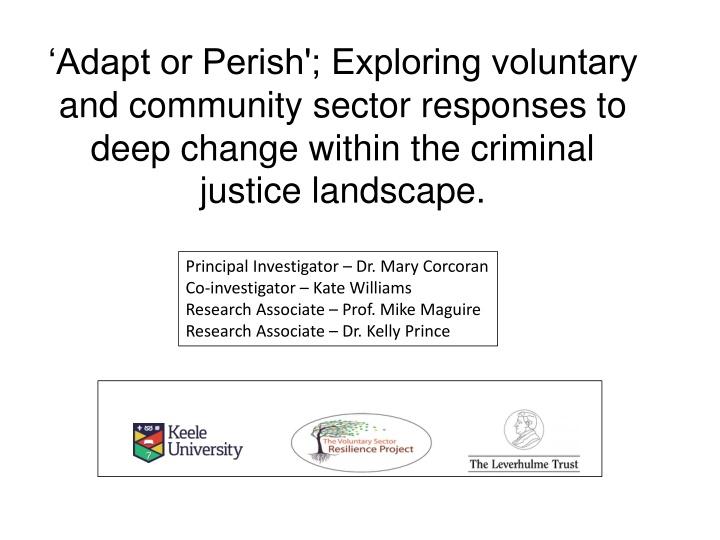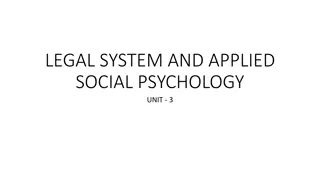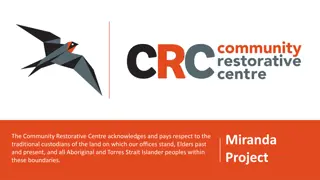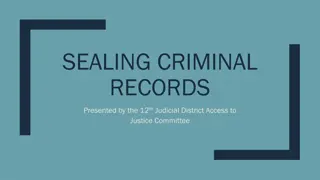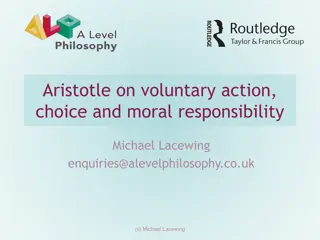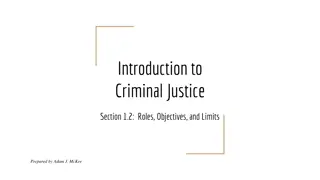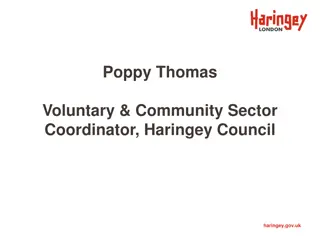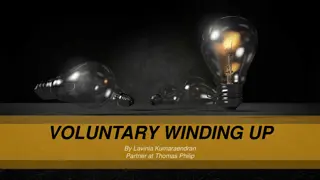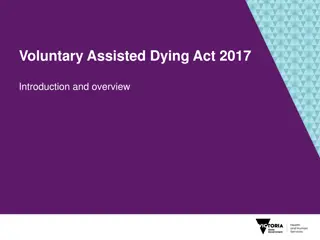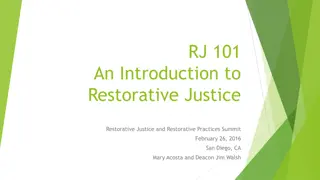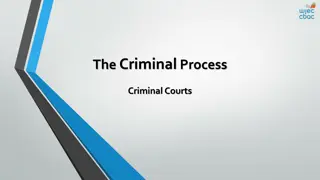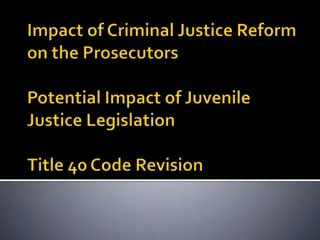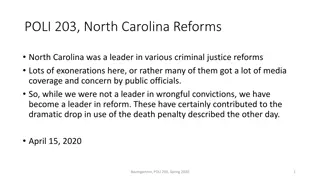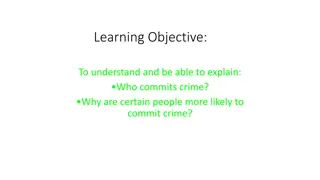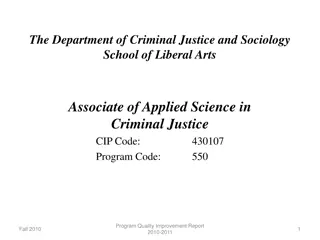Adapt or Perish: Exploring Voluntary Sector Responses to Criminal Justice Changes
This research project investigates how voluntary sector organizations in the criminal justice system are adapting to societal changes such as marketization, professionalization, penal drift, and partnerships. Led by a collaborative academic team, the study aims to analyze the evolving landscape and potential impacts on VSOs.
Uploaded on Oct 05, 2024 | 2 Views
Download Presentation

Please find below an Image/Link to download the presentation.
The content on the website is provided AS IS for your information and personal use only. It may not be sold, licensed, or shared on other websites without obtaining consent from the author.If you encounter any issues during the download, it is possible that the publisher has removed the file from their server.
You are allowed to download the files provided on this website for personal or commercial use, subject to the condition that they are used lawfully. All files are the property of their respective owners.
The content on the website is provided AS IS for your information and personal use only. It may not be sold, licensed, or shared on other websites without obtaining consent from the author.
E N D
Presentation Transcript
Adapt or Perish'; Exploring voluntary and community sector responses to deep change within the criminal justice landscape. Principal Investigator Dr. Mary Corcoran Co-investigator Kate Williams Research Associate Prof. Mike Maguire Research Associate Dr. Kelly Prince
The Project: Who: academic team from Keele, Aberystwyth and South Wales Universities, in partnership with Where: England and Wales When: Funded by Leverhulme Trust, beginning April 2015 and ending March 2017
Introduction: 4000 voluntary sector organisations (VSOs) are working with offenders (Gojkovic et al., 2011). Accommodation, employment training and education, mentoring, legal advice, drug and alcohol support etc. Advantage (perceived) of voluntary sector (VS) over state and private companies: National and local government Effective delivery of support to marginalised groups and communities PUBLIC OPINION Voluntary and Community Sector CLIENT Private Corporations PROFIT
Background: The criminal justice voluntary sector is going through a period of deep change: New Labour - competitive public services. Transforming Rehabilitation(2013) policy Probation Service now largely privatised Community Rehabilitation Companies Co-optation of the voluntary sector by the state (Ware, 1989; Wolch, 1990) Compromise to their distinctive social mission (Gill and Mawby, 1990; Seddon, 2007). Voluntary sector is prey to assimilation by predatory commercial interests (McKay et al., 2011) Profiting from punishment (Rodrigues, 2007). Adapt or perish (Stephen Bubb, National Association of Chief Executives of Voluntary Organisations).
Research Aim: This research will explore whether, to what degree, and why different kinds of voluntary sector organisations (VSOs) may be changing, standing still, accommodating, adapting, resisting, innovating within, or withdrawing from working in the field of criminal justice? We will do this by using 4 key analytical themes:
Key Themes: Marketisation: We have now shifted from a welfarist social economy to a market economy in criminal justice. Professionalisation: VSOs are having to change their practice and work in the resettlement market. Penal Drift: This is a shift from a social care approach to clients, to one that is more punitive supervision, monitoring, reporting. Partnerships and Networks: In order to operate in a competitive environment, many VSOs are merging with others, or entering into partnerships with for profit organisations.
Data collection: Mixed methods approach: A survey involving projects and individuals working in the criminal justice voluntary sector (n=300 responses) 5 Case studies, including site visits, interviews with staff/volunteers, document analysis and focus groups We will conduct interviews In partner organisations In criminal justice VSOs outside of the case studies With key policy and commissioning stakeholders
Two hypotheses: Complex and varied responses to structural change - moving beyond the binary of adapt or perish . Counter-narratives or counter trends might be discernible - which we characterise tenuously as resilience . Resilience encapsulates the ability of the sector to balance its survival imperative with its distinctiveness imperative (Salomon, 2013: 3): it materialises where VSOs find ways of meeting competition while retaining their social mission (ibid: 60-61); sustaining their advocacy role while forging partnerships with business or state bodies; and combining new ventures while engaging communities, for example.
Conclusion Timely and pertinent This project will: Address a gap in scholarship (empirical research, and, the consideration of space for resilience and resistance) Provide information for policy makers and commissioners on factors which enable or hinder VS service provision in offender resettlement. Involve and share information with the sector throughout the project and dissemination strategy
